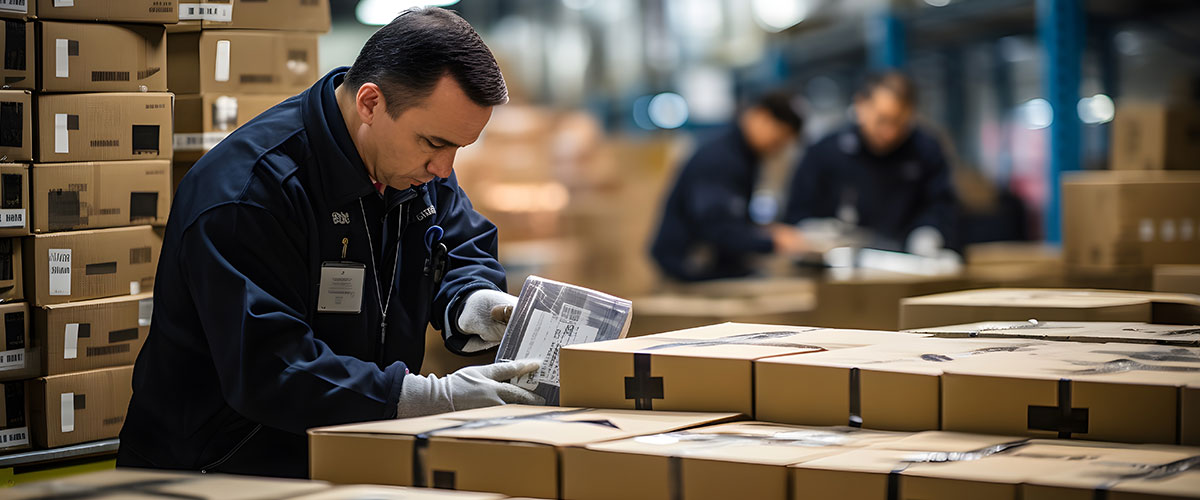Customs clearance is mandatory for imports of all goods. It is essential for national security, ensuring compliance with trade regulations, and the accurate levying and collection of customs duties. To fulfill these responsibilities effectively, customs officials require comprehensive information about each import shipment, such as the exporter, importer, commodity details, components, origin, value, and other critical data.
This process involves an extensive number of documents, which must be provided by the importer or customs broker to the customs department to ensure timely and hassle-free clearance of cargo. Customs brokers, authorized to conduct customs business, play a vital role in organizing customs entries, facilitating payment of duties, and ensuring compliance with the regulations set by customs authorities.
Proper documentation management is crucial for efficient customs clearance. However, documentation requirements are often onerous, requiring manual collation and compilation of information from various sources and formats, including Excel spreadsheets, Word documents, PDF files, emails, and even physical paperwork. The growing interplay of geopolitical and economic factors — such as sanctions, bilateral treaties, new tariffs, regional trading blocs, nearshoring, and preferential access agreements — has further exacerbated the complexities and volume of trade documentation requirements.
To ensure a smooth and efficient customs clearance process, businesses and individuals must adopt best practices, including:
- Staying up-to-date with changes in customs regulations and requirements: Customs regulations evolve frequently, making it essential to stay informed and adapt to new requirements.
- Using document management systems: These systems streamline the customs clearance process by organizing and managing documents efficiently, reducing the risk of errors and delays.
- Embracing electronic documents and digital document management solutions: Transitioning to electronic business documents can optimize operations, enhance accessibility, and significantly reduce paperwork burdens.
By implementing these strategies, businesses can minimize risks associated with customs clearance, ensuring a seamless and efficient global trade experience. Effective documentation management not only supports regulatory compliance but also plays a pivotal role in mitigating delays and enhancing the overall supply chain efficiency.
Common documents in Imports
Amongst the more important documents in the imports process are:
- Bill of Lading
- Commercial Invoice
- Arrival Notice
- Import Customs Declaration
- Import License
- Certificate of Origin
- Letter of Credit
- Import Security Filing
- Other local Customs requirements
The documents listed here are the common ones, with additional documentary requirements depending on the commodity, nature of cargo, or other specific regulations (such as regarding the use of child or forced labor or the EU’s Carbon Border Adjustment Mechanism).
Customs brokers assist with completing and submitting customs declarations, ensuring compliance with customs regulations, and paying duties on behalf of the importer. Customs brokerage services facilitate smooth communication and logistics for international shipments, offering features such as expedited cargo clearance and comprehensive regulatory compliance.
Documentation Management and its Importance
Since the implications of non-compliance or inadvertent violations can be severe, resulting in the imposition of monetary fines and other penalties, it is imperative for importers and
customs brokers to efficiently manage and handle trade documentation. Customs brokers are authorized by the U.S. Customs and Border Protection (CBP) to assist importers with customs business transactions, ensuring compliance with CBP regulations.
Besides, importers and customs brokers also have a legal obligation to store documents for a predefined period, which makes it necessary to arrange storage and security of documents.
It is in this context that documentation management assumes great importance. Documentation management refers to the process of gathering, storing, organizing, and retrieving files and documents. It essentially involves digitizing trade documents, which then offers subsequent benefits such as Intelligent Document Processing (IDP), automated information flows, enhanced data security, and faster access for authorized personnel.
Documentation management is essential to streamline the customs clearance process, replacing the cumbersome manual process with automated workflows, that are intended to reduce errors and instances of non-compliance, thus reducing manpower costs and associated risks, freeing up valuable human resources to concentrate on core business and value-added tasks.
Using Technology to Streamline Document Management Systems
As inefficiencies in traditional document handling become increasingly apparent, the need for standardized, efficient processes supported by technology has grown more urgent. The physical handling of documents and reliance on manual effort are no longer sufficient to meet the demands of modern international trade. Deploying technology is not just an option — it is essential for enhancing the efficiency and compliance of the global supply chain while ensuring faster, more accurate customs clearance.
Technological advancements have ushered in innovative solutions like intelligent document processing (IDP). Providers such as KlearNow leverage IDP to reduce manual workloads, automate repetitive tasks, and deliver seamless, end-to-end documentation management. These systems eliminate errors, accelerate processing times, and improve data accuracy, enabling smoother operations across the supply chain.
Documentation management systems are gaining widespread adoption as importers, customs brokers, and logistics service providers embrace digital transformation. By integrating technology into their workflows, these stakeholders are optimizing processes, improving compliance, and unlocking new efficiencies. As the industry becomes increasingly tech-savvy, such systems are proving indispensable in revolutionizing documentation management and driving operational success.
Simplify Customs Documentation Management with KlearNow
For businesses looking to utilize technology for documentation management, KlearNow offers a range of products, to meet the unique needs of importers and customs brokers of varying operational scale and geographical spread. Understanding customs charges is crucial for international shipping, and KlearNow’s solutions help importers manage these responsibilities effectively.
As one of the pioneers in this field, KlearNow has considerable industry expertise, which in conjunction with the continuously improving systems, has positioned KlearNow as the preferred customs clearance partner for importers and customs brokers. KlearNow’s suite of logtech solutions, including KlearEngine, and KlearCustoms, simplifies complex customs clearance processes. It functions as a single platform for managing shipping documents and related processes, with the ability to digitize and transform trade documents into meaningful data for validation and pre-populating customs filing documents.
This makes it easier to store, archive, and retrieve documents, as and when needed, besides enhancing data security by allowing authority-based access to information.
For more information and a free demo to explore KlearNow’s products and determine which one is most suitable for your business, click here.

